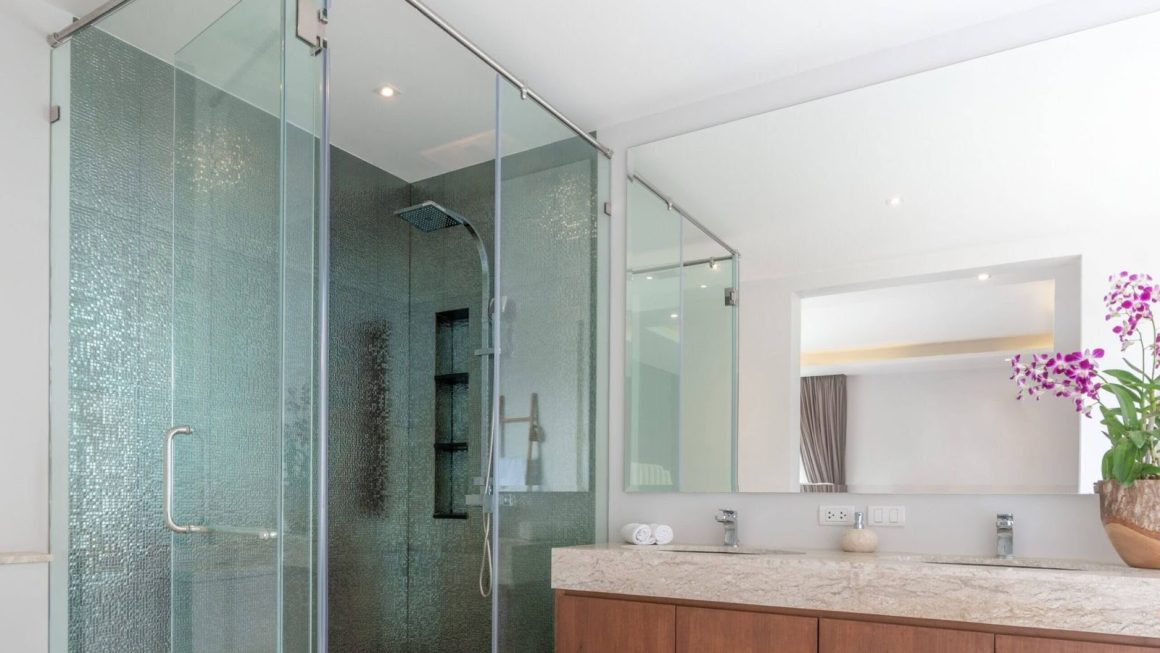Today, air conditioners are one of the most common home appliances. Most households have an air conditioning unit of one type or another installed. Whether you’re planning to replace an old unit or considering upgrading your current system, you might have one question in mind – which type of ac system is best for your room? When you find it challenging to decide which one to invest in for one of the rooms in your home, learning about the different air conditioning systems would be a good starting point.
An air conditioning unit is a crucial part of any home and may consume a significant amount of your budget. With this in mind, it’s vital to make the right choice when choosing one since the cooling in your home, comfort, and energy consumption will depend on it.
Aside from weighing the pros and cons of each type, you should also factor in your budget, the energy consumption rate, cooling power, space requirements, and maintenance. More so, you should consider consulting professionals with the skills and expertise when it comes to air conditioning installation.
To help you start, here are some of the different air conditioning systems on the market you need to check out, along with their advantages and disadvantages to help you decide which one can cater to your specific needs.
Central Air Conditioning System
A central air conditioning unit might be ideal if you have a spacious home and are looking for an efficient system that can cool several rooms at once. It’s the most common type among the different air conditioning systems and a preferable choice for larger homes due to its cooling capability.
A central air conditioning unit has a split system that propels air via ductwork in your home. Since the system uses ducts, it’s also popularly called a ducted system. As a split system, it’s a combination of two central units. The outdoor unit includes the condenser and compressor, while the indoor unit comprises the air handler and evaporator coils.
Like any standard air conditioning unit, a central air conditioning system utilizes refrigerant to eliminate heat from the indoor air. It removes the heat outside while the cool air moves through the ductwork. Among the latest models today, they have programmable thermostats to provide you with a smart home experience.
If you’re planning to install a central air conditioning system, it’ll require thorough planning and preparation since the sizing is essential to the system’s overall functionality. Installing the incorrect size will only result in higher utility bills than usual. Additionally, due to the complexity of this system, it would require routine AC maintenance and service by a professional.
Advantages
- Capable of cooling multiple rooms in your home at once, ensuring a cooler and well-regulated environment in minimum time
- A lower level of humidity around the house can be achieved due to the even distribution of air to provide a comfortable environment
Disadvantages
- Higher consumption of energy results in a higher utility bill
- Units may eventually deteriorate, losing efficiency and effectiveness, especially when issues in the ducts develop
- Some may find the outdoor unit of this system an unattractive element on their house’s façade or exterior
Ductless Mini-Split Air Conditioning Unit
A ductless, mini-split system is a common choice for homeowners that don’t want the complexity of ductworks. It’s also an ideal choice if you only want to cool one area of your home.
A ductless air conditioning system also has an external unit comprising the condenser and compressor with an interior unit affixed on the wall and equipped with air blowers. Both the outdoor and indoor units connect via tubing as the refrigerant circulates.
As a compact system, each room in your home will have a unit that you can use for cooling or heating purposes. A ductless system is more efficient in energy consumption but can be costly if you plan to install one in every room in your home.
Take note that many ductless, mini-split systems can support up to four indoor handling units, all of which connect to the outdoor unit. For every zone, it has its thermostat, which allows you to adjust the temperature for each room separately. Consider this an advantage if you only want to cool a specific area in your home. Today, most present-day units can impart an aesthetic appeal and don’t take up space as a window unit.
The ductless mini-split systems on the market come with remote control, while some have a smart AC controller which you can use anywhere.
Advantages
- Easy to install in any location without too much hassle or ductwork
- Allows you to control the temperature of each room separately
Disadvantages
- May not be capable of cooling larger spaces
- The indoor unit of this AC system becomes part of the home’s interior which some may find aesthetically unappealing. Added work needs to be done should the homeowner want to conceal or treat it.
Window Air Conditioning Unit
For single rooms, a window air conditioning unit is a popular choice. Generally, it’s a single unit with all components enclosed within. It drives out heat via its outer side and generates cool air into the room via the indoor side. As the name implies, the unit is installed like a window by creating a hole in the wall.
These units have a filter you can slide out for cleaning. Most have controls on the unit, while others come with a remote.
A window unit is a popular choice for small houses or apartments. Unfortunately, if you opt for this unit, a common concern you should be aware of is the security risk. Since the unit is mounted thru a hole in the wall, burglars can dismount it and use the hole as access to enter your home. You might need to invest in air conditioner brackets to make it more difficult to remove the unit from the outside
Advantages
- Available at an affordable price range and considerably cheaper to operate
- Easy installation and maintenance
- It doesn’t take up floor space
Disadvantages
- It can produce an undesirable noise during operation and is visible from outside your home
- Obscure the view from a window and should be situated close to an electrical outlet
Portable Air Conditioning Unit
A portable air conditioning unit is similar to a window-type system but boasts portability. It’s a free-standing unit that you can conveniently move from one place to another. The unit only requires a power outlet and access to a window where a funnel can move the unit’s air outside.
A portable unit can be a single-hose that takes air from inside a room and eliminates outdoors. There’s also a dual-hose model which pulls air from the outside using one hose, which cools the compressor and eliminates outside from the other hose. Since the unit stays indoors, the evaporator fan operates continuously to evaporate the condensed moisture that builds up within the unit.
You might consider getting a portable unit if you want to cool a space temporarily or when it’s not practical to install a split or window air conditioning unit. More so, it can be an ideal investment, especially during the warm summer months. Having one on hand allows you to bring it wherever you want and enjoy a comfortable environment.
Advantages
- Easy to set up
- Convenient to move around the house
- It doesn’t require a permanent installation
- Ideal option for spot cooling
- Hassle-free to store when not in use
Disadvantages
- Noisy during operation
- Not capable of cooling large rooms
- It comes with a hose you need to position near a window that might obstruct the lower part of the window
Floor-Mounted Air Conditioning Unit
If you’re looking for the convenience of a mini-split system but lack the necessary space for a wall-mounted unit, then a floor-mounted air conditioner can be your ideal option.
The internal unit of this AC system rests on the floor, while a professional install the external unit without significant site preparations or ductwork installation. It’s suitable for areas with tilted walls such as attics or structures made of fragile materials such as glass.
Generally, you can install the unit around six inches above the floor with a small hole to connect to the external unit. An advantage of this unit is that it allows you to inspect the air filters easily. More so, it is capable to cool or heat a space more rapidly than the other systems since the fan blows the air directly at your level. Make sure to provide adequate space around the unit for it to function optimally and circulate the air around effectively.
Advantages
- An ideal choice for ease of accessibility and convenience
- Easy installation
Disadvantages
- Obstructed airflow if there are obstacles in the room
- Not suitable for large spaces due to uneven distribution of air. If even cooling distribution is desired using this system, additional units must be needed.
Hybrid Air Conditioning System
Generally, a hybrid AC system is a combination of a gas furnace with an electric heat pump. The system is ideal if you want a cost-effective and highly efficient system for cooling and heating your home.
The system switches automatically between burning fuel and electricity depending on the outdoor temperature. You can program the temperature in which the system will change from the heat pump to a furnace. Some homeowners may also consider utilizing a manual switch.
The heat pump works by drawing warm air from within your home and eliminating it outside during summer. As winter arrives, the process works in reverse, which allows the even distribution of heat throughout your home. The furnace will take over once the temperature is too cold for the heat pump to work efficiently.
Advantages
- Maximize comfort for your home and can help minimizes the cost of your monthly utility bills
- Helps reduce your carbon footprint
Disadvantages
- Can be expensive during the initial setup
- Can achieve breakeven after a long time
Geothermal Air Conditioning System
Among the different air conditioning systems available on the market today, geothermal air conditioning is new. The system is considered environmentally friendly since it utilizes the insulating properties of the earth to power its system. Since the temperatures below four to six feet maintain a consistent range regardless of the weather, geothermal technology makes use of this property to cool and heat your home more efficiently.
In general, the system consists of pipes with a loop that circulates water between your home, the ground, and a heat pump. If you decide to opt for this method, you’ll have to put in a lot of effort to set it up underground.
Advantages
- A highly efficient choice if you want to minimize energy consumption
- A longer lifespan than other cooling and heating systems
Disadvantages
- The installation will depend on the location due to the addition of loops in the ground
- It may require a costly setup
Smart Air Conditioning Unit
If you are aiming to have a smart home anytime soon, then a smart air conditioning unit can be right for you.
Your AC system base can be a window-type, mini-split, or portable air conditioning unit that is Internet of things (Io) enabled. Generally, these units connect to Wi-Fi and come along with a native application to provide you with global control via a smartphone.
Depending on the manufacturer, these air conditioning units include a variety of functionalities such as temperature control, weekly scheduling, geofencing, and many others. When you utilize these features, it’ll help you achieve the ideal convenience of comfort for your home along with energy efficiency in the long run.
Advantages
- Ensure the best level of comfort and convenience with a variety of features
- May allow better energy savings options
Disadvantages
- It comes with a higher price tag than regular units
- Wi-Fi connectivity is a requirement to utilize all the features
Also Read: How Often Should AC Be Serviced?
Final Thoughts
When selecting the ideal air conditioning system for your room, make it a priority to choose one that can cater to your specific needs. A crucial point to consider during the selection is being realistic with the power you need. Other considerations include if you’re ready to drill holes in the walls, having an outdoor shell in your home, or how quiet the unit you want to be.
Now that you’re familiar with the various types of air conditioning units on the market along with their advantages and disadvantages, you may now have a clearer direction to go to and answer the question– which type of AC system is best for your room?
The information above can help you decide which one can ensure the ideal environment for your home throughout the year.



